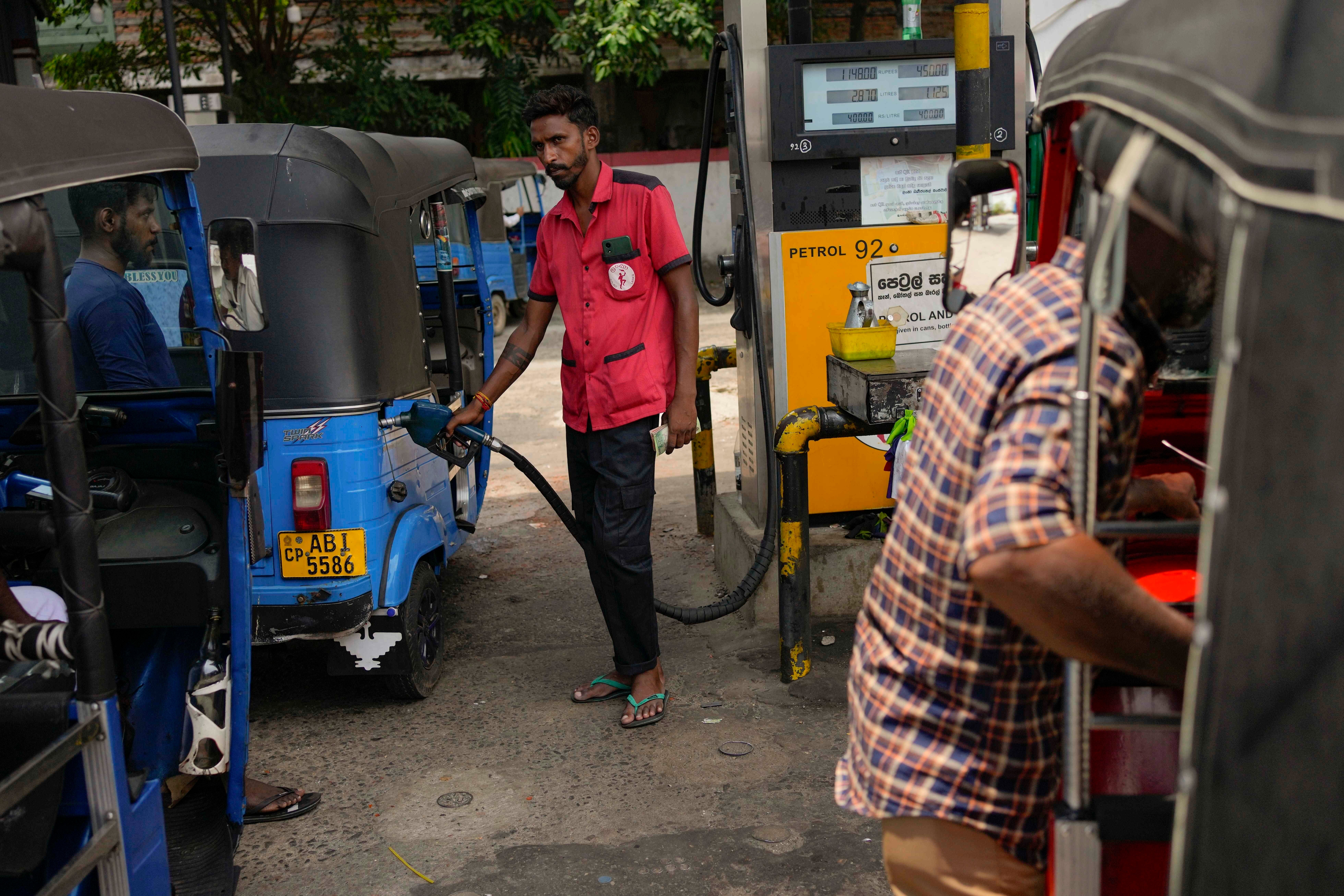Sri Lanka seeks $17 billion debt reduction by restructuring
Sri Lanka’s president has asked its parliament to approve a four-year International Monetary Fund program to restructure the country's $17 billion in foreign debt

Your support helps us to tell the story
From reproductive rights to climate change to Big Tech, The Independent is on the ground when the story is developing. Whether it's investigating the financials of Elon Musk's pro-Trump PAC or producing our latest documentary, 'The A Word', which shines a light on the American women fighting for reproductive rights, we know how important it is to parse out the facts from the messaging.
At such a critical moment in US history, we need reporters on the ground. Your donation allows us to keep sending journalists to speak to both sides of the story.
The Independent is trusted by Americans across the entire political spectrum. And unlike many other quality news outlets, we choose not to lock Americans out of our reporting and analysis with paywalls. We believe quality journalism should be available to everyone, paid for by those who can afford it.
Your support makes all the difference.Sri Lanka’s president urged lawmakers Wednesday to approve a four-year International Monetary Fund program to restructure the country’s $17 billion in foreign debt.
Parliament began a three-day debate Wednesday on President Ranil Wickremesinghe’s proposal to accept the IMF program. It will be followed by a vote.
If approved, the plan would dictate how Sri Lanka’s crisis-stricken economy will be managed in the coming few years.
A majority of lawmakers are expected to accept the IMF’s four-year bailout program. Under the plan, the international development lender will provide nearly $3 billion in stages.
Sri Lanka announced last year that it was suspending repayment of its foreign loans because of a severe foreign currency crisis resulting from the impact of the COVID-19 pandemic and efforts by the central bank to stabilize the Sri Lankan rupee by by using scarce foreign reserves.
Wickremesinghe said at the time he took over as president last July, the country's total debt, including both domestic borrowing and foreign was $83.6 billion.
Wickremesinghe said negotiations on restructuring Sri Lanka's foreign debt will be held with neighboring India and the Paris Club, a group of major creditor nations on one platform, and separately with China.
Debt restructuring can take various forms including bailouts, renegotiating terms of loans and writing off or reducing the amount owed for some loans.
Sri Lanka also needs to restructure its domestic debt. Wickremesinghe said the government would safeguard local banks and employee provident funds it has borrowed from if need be.
Once a decision is made on the IMF plan, discussions can begin on a 25-year economic policy roadmap, he said.
Sri Lanka’s economic crisis — the worst in memory — caused severe shortages of food, medicine, fuel, cooking gas and electricity last year. That led to massive street protests that forced then-President Gotabaya Rajapaksa to flee the country and resign.
The economy has shown signs of improvement since Wickremesinghe took over as president last July. Shortages have been alleviated, power cuts have ended and the Sri Lankan rupee has begun to strengthen.